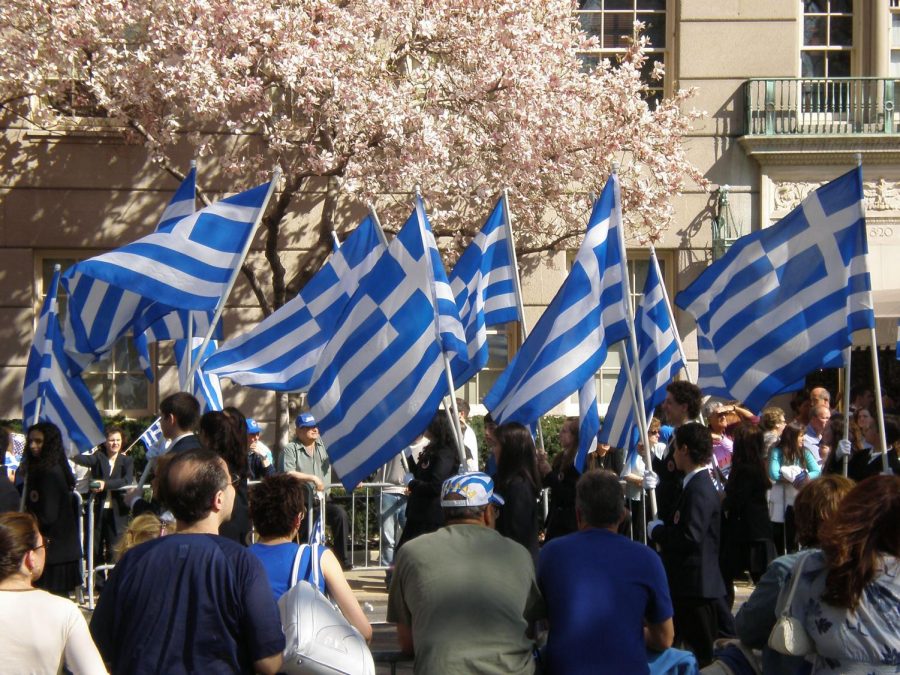An ongoing conflict between Greece and Turkey has been brewing in the eastern Mediterranean Sea, with both countries accusing each other of overstepping in an area they both lay claim to.
The conflict intensified this past September, as Turkey began drilling for natural gas off the coast of Crete and the Dodecanese Islands, which are internationally recognized as Greek territory. This was seen as a threat by Turkey to the Greeks, who have viewed the Turkish government as acting increasingly provocative, reports the BBC.
Kostas Loukos, who is a Greek-American student studying political science and international relations at Suffolk University, explains that the conflict is a very personal issue to him.
“I know many people in Greece who have told me that they see Turkish ships off the Greek coast on a regular basis,” said Loukos. “They tell me stories of Turkish jets flying so low above their homes, that they can feel the house shaking.”
Greece, a nation that is continuing to recover from an economic crisis that occurred in 2009, discovered the natural gas reserves in that region in 2015; something that could be pivotal in reigniting its economy and boosting trade with its European and Middle Eastern neighbors, according to The Conversation.
Turkish president Recep Tayyip Erdoğan has continuously targeted Greece not only by drilling in their waters, but also by claiming several Greek islands in the Aegean Sea as Turkish, and redrawing the borders between the two countries. Turkey also claims that if Greece extends its exclusive economic zone two more miles, which would block Turkey’s access to the Aegean Sea, Turkey will commence the use of military action, reports Reuters.
These actions are not only limited to the Greeks of Greece, but the Greeks of Cyprus as well. According to The New York Times, this culminated last November when Erdoğan made a visit to the Turkish-occupied Northern Cyprus, a state only recognized by Turkey. This led to Greece and Cyprus protesting to the European Court and the United Nations, and many Greek and Greek Cypriot leaders suggested that serious action must be taken against Turkey.
Loukos explains how these provocations are a major threat to the security of Greece, and that he approves of the Greek government’s recent actions to increase their military and expand their diplomacy.
“Lesvos, the island where much of my family is from, has already struggled to house thousands of refugees who have fled war in the Middle East these past few years,” Loukos said. “The fact that Greece is still coming out of an economic crisis and is still able to provide for these people, as well as fund the EU and NATO, tells you a lot about the mentality we Greeks have.”
Many political scientists believe that the only factors preventing the conflict from escalating into war is that both nations are members of the North Atlantic Treaty Organization (NATO), and that the European Union (EU) has openly supported Greece and Cyprus, according to the New York Times.
Turkey is a major funder of NATO, and has long wished to become a member of the EU. However, provocations against Greece, combined with Turkey’s refusal to recognize the Republic of Cyprus and the Turkish military’s recent attacks on Armenia, Syria and Iraq have since isolated Turkey from many western nations, reports Carnegie Europe.
Greece and Turkey have a long history of animosity, reports the Greek City Times. Many historians believe that the enmity between the two goes as far back as 1453, when the Turks of the Ottoman Empire conquered Constantinople. The city was the capital of the Greco-Roman Byzantine Empire and the holiest city to the Greek Orthodox Christians, until it became the Ottoman Empire’s capital of Istanbul.
Greece and Turkey have fought each other in several wars since 1453, including the Greek War of Independence (1821-1829), the First Greco-Turkish War (1897), the First Balkan War (1912-1913), World War I (1914-1918) and the Second Greco-Turkish War (1919-1922); the latter in which Greece attempted to regain its lost pre-Ottoman territory after the fall of the Ottoman Empire, following World War I. Many of these wars have resulted in war crimes, deportations, and genocide by Turkey against the Greek population, according to Britannica.
More recently, Turkey invaded Cyprus in 1974, which resulted in the lasting Turkish occupation and suppression of the native Greek population. Turkey has also attempted to invade Greek territorial islands in the Aegean Sea in 1996. The ongoing ethnic conflict between the two nations can still be seen to this day, such as when Erdoğan recently converted the formerly Greek Orthdox Church, Hagia Sophia, which had served as a museum since 1935, back into a mosque for the first time since the fall of the Ottoman Empire.
This decision was criticized by Greek Prime Minister Kyriakos Mitsotakis, who said that the conversion was “not a display of strength, but a proof of weakness.” Greek Minister of Culture Lina Mendoni also expressed similar beliefs, claiming that Erdoğan’s actions were an “open provocation to the civilized world,” according to the New York Times.
Author, poet and Suffolk University professor George Kalogeris, who is the descendent of a family that fought against the Turks in the Balkan and Greco-Turkish Wars, said that Greek history has always reflected on the mentality of its people.
“I come from a Greek immigrant family, and Greek history, culture, and tradition was a central part of the community I was raised in. It was also a major influence that inspired me to pursue writing and poetry,” Kalogeris said. “To my parents, it was never Istanbul, it was always Constantinople.”
He said the Greek mentality represents compassion, pride, persistence and the ability to carry on with life, despite the many tragedies the Greeks have faced throughout history.
“To me being Greek can be summed up in one word,” Kalogeris says, “elefthería, meaning liberty, freedom, and independence.”






